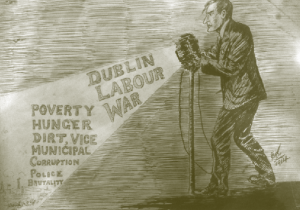Bookworm
In keeping with the Lockout theme, Bookworm has cast the net a bit wider for this issue, which means that the first and most obvious book to mention is a novel: James Plunkett’s classic Strumpet city (Gill & Macmillan, €10.99pb, 560pp, ISBN 9780717156108). Plunkett’s epic was chosen for the Dublin Public Libraries ‘One City, One … Read more


